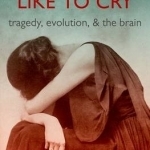Why Humans Like to Cry: Tragedy, Evolution, and the Brain
BookThis item doesn’t have any media yet
2014 | Philosophy, Psychology & Social Sciences
Human beings are the only species to have evolved the trait of emotional crying. We weep at tragedies in our lives and in those of others - remarkably even when they are fictional characters in film, opera, music, novels, and theatre. Why have we developed art forms - most powerfully, music - which move us to sadness and tears? This question forms the backdrop to Michael Trimble's discussion of emotional crying, its physiology, and its evolutionary implications. His exploration examines the connections with other distinctively human features: the development of language, self-consciousness, religious practices, and empathy. Neuroanatomy and neurophysiology of the brain have uncovered unique human characteristics; mirror neurones, for example, explain why we unconsciously imitate actions and behaviour. Whereas Nietzsche argued that artistic tragedy was born with the ancient Greeks, Trimble places its origins far earlier. His neurophysiological and evolutionary insights shed fascinating light onto this enigmatic part of our humanity.
Related Items:
| Published by | Oxford University Press |
| Edition | Unknown |
| ISBN | 9780198713494 |
| Language | N/A |
Images And Data Courtesy Of: Oxford University Press.
This content (including text, images, videos and other media) is published and used in accordance
with Fair Use.
